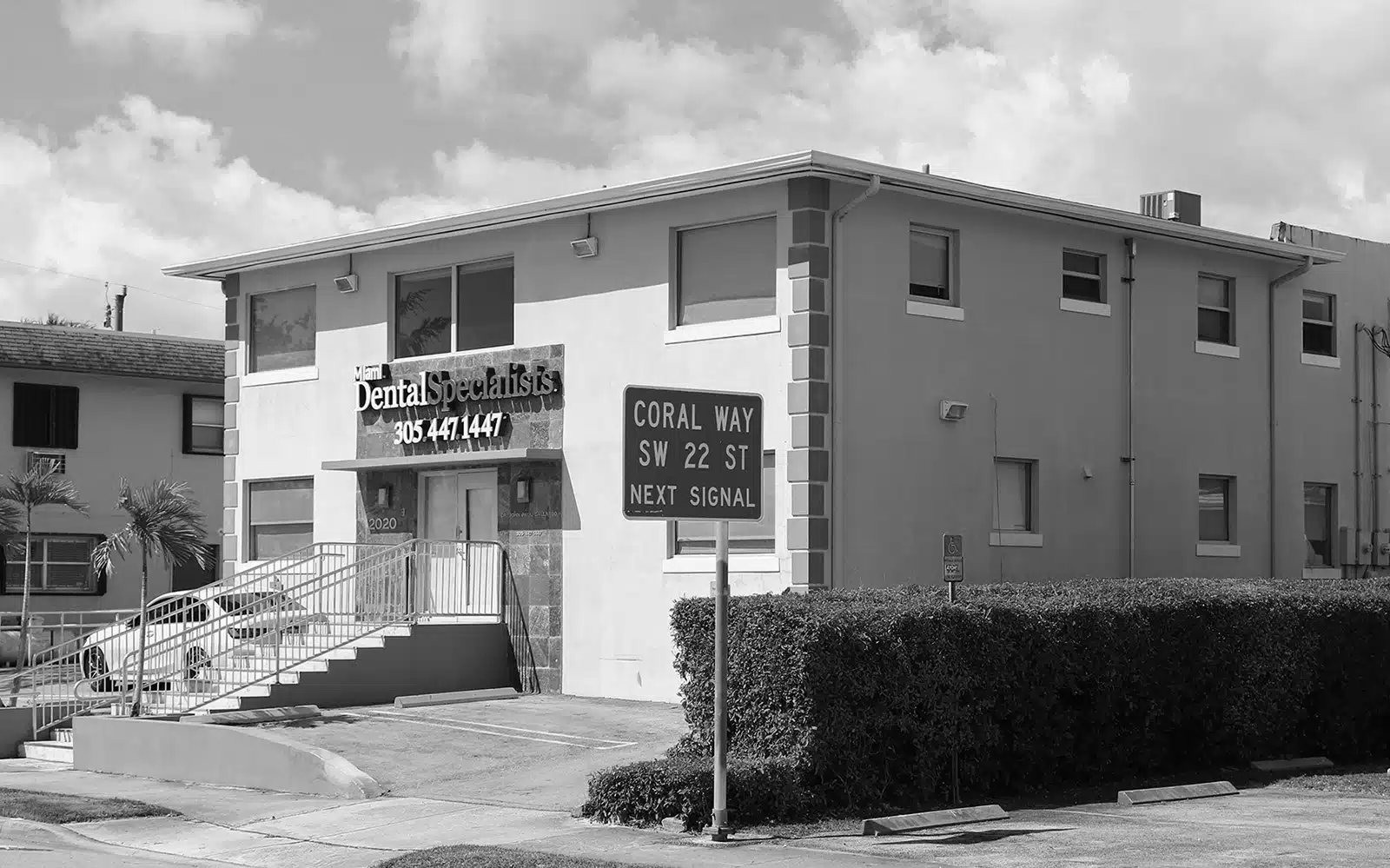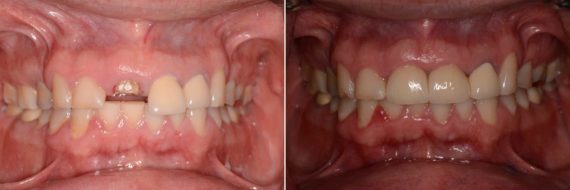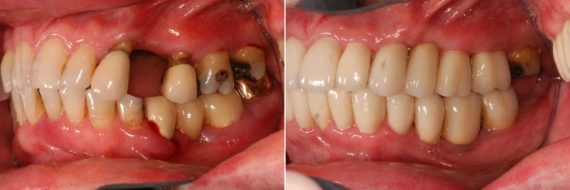
Ever felt that shocking moment when you bite down and something doesn’t feel right, then realize it’s part of your tooth? A broken tooth can happen suddenly and without warning, leaving you unsure of what to do next.
Whether it’s from an accident, a hard piece of food, or just years of wear and tear, a broken tooth is more than just a cosmetic concern. If left untreated, it can lead to pain, infection, or even tooth loss. Here’s what you need to know to act fast and protect your smile.
What Causes Your Teeth to Break?
Teeth are incredibly strong, but they’re not indestructible. Over time, various factors can weaken their structure, making them more prone to cracking, chipping, or breaking. Understanding the root causes can help you avoid dental emergencies and keep your smile intact.
- Biting hard foods: Ice, hard candy, or unpopped popcorn kernels can crack a tooth in an instant.
- Facial trauma or injury: Accidents, falls, or sports injuries can lead to immediate tooth damage.
- Tooth decay: Cavities weaken the internal structure of a tooth, increasing the risk of it breaking.
- Old dental work: Worn-out fillings or restorations may no longer support the tooth properly.
- Teeth grinding (bruxism): Chronic grinding or clenching can wear down and eventually fracture teeth.
- Sudden temperature changes: Eating something extremely hot and then cold (or vice versa) can cause teeth to crack.
Difference Between a Cracked vs Chipped Tooth
While both cracked and chipped teeth fall under the category of tooth damage, they differ significantly in severity and treatment approach. A cracked tooth typically involves a fracture that can extend from the chewing surface down toward the root.
These cracks can be difficult to detect and may cause pain when biting or sensitivity to hot and cold. Left untreated, a crack can deepen and even split the tooth entirely, potentially requiring more complex procedures like root canals or crowns.

In contrast, a chipped tooth usually means a small portion of the outer enamel has broken off, often due to trauma or biting something hard. Chips are usually visible, resulting in a jagged or uneven edge, and they typically don’t cause much pain unless they’re large enough to expose the dentin or nerve. Chipped teeth are often easier to repair with cosmetic treatments like dental bonding or veneers.
What to Do If You Suspect You Have a Broken Tooth
If your tooth breaks, treat it like the dental emergency it is. Call your dentist or an emergency dental clinic right away. The sooner you seek professional care, the better your chances of saving the tooth and preventing further complications. In the meantime, rinse your mouth with warm water to keep the area clean, apply a cold compress to reduce swelling, and take over-the-counter pain relievers if needed. Protecting the area from further damage is key until you can be seen by an endodontist.
How Are Broken Teeth Fixed
The right treatment for a broken tooth depends on the severity and location of the damage. Fortunately, modern dentistry offers several highly effective solutions to restore both function and appearance. From simple cosmetic fixes to more involved dental treatments, your dentist will tailor the treatment plan to your specific case. Below are some of the most common methods used to repair broken teeth:
Dental Filling or Bonding
Dental filling or bonding is often the go-to solution for small chips or cracks in the tooth. Using a tooth-colored composite resin, your dentist can rebuild the lost portion of the tooth and blend it seamlessly with your natural tooth enamel. The material is shaped, cured with a special light, and polished for a smooth, natural finish. This quick and minimally invasive procedure is ideal for visible teeth and offers both functional repair and cosmetic enhancement in just one visit.
Root Canal Therapy
If a break or crack extends into the pulp of the tooth, a root canal may be necessary to save it. During this procedure, the dentist removes the damaged or infected pulp, cleans the inside of the tooth, and seals it to prevent further issues. A crown is usually placed afterward to restore strength and appearance. Though the idea of a root canal can seem intimidating, modern techniques have made the process relatively comfortable and highly effective.
Dental Veneers
Dental veneers are thin shells made of porcelain or composite material that are bonded to the front surface of a tooth. They’re a popular option for restoring chipped or slightly broken front teeth, offering both durability and a natural appearance. Veneers are custom-made to match the color and shape of your surrounding teeth, creating a seamless result. While the process typically requires two visits, the long-lasting aesthetic benefits make veneers a preferred choice for patients seeking a cosmetic upgrade.
Dental Cap or Crown
A dental crown—also known as a cap—is often recommended when a large portion of a tooth has broken or when the structure is too weak for a filling alone. Made from materials like porcelain or ceramic, crowns are designed to completely cover the damaged tooth, restoring its strength, shape, and appearance. The process typically involves two appointments, but the result is a durable, long-term solution that protects the tooth and blends naturally with your smile.
Dental Implants
In cases where a broken tooth can’t be saved, a dental implant may be the most effective long-term solution. This procedure involves placing a titanium post into the jawbone to act as a tooth root, which is then topped with a natural-looking crown. Dental implants are durable, stable, and function just like real teeth. They help preserve jawbone health and prevent neighboring teeth from shifting, making them an excellent option for complete tooth replacement.

Recovery Tips After a Tooth Extraction and Repair
Caring for your mouth after a tooth repair or extraction is essential to promote healing and avoid complications. In addition to managing any pain or discomfort, there are several practical steps you can take to support recovery and protect the treated area. Here are a few key tips to keep in mind:
- Follow all post-treatment instructions: Your dentist will provide specific guidance based on your procedure. Stick to it closely.
- Avoid strenuous activity: Resting gives your body the best chance to heal efficiently.
- Stick to soft foods: Choose foods that are easy to chew and won’t irritate the treated area.
- Stay hydrated: Drinking plenty of water helps keep your mouth clean and supports overall healing.
- Maintain good oral hygiene: Gently brush around the treated area to keep it clean, avoiding direct pressure.
- Avoid smoking and alcohol: These can slow healing and increase the risk of infection or complications.
Dealing With Mouth Pain After a Tooth Breaks
Mouth pain from a broken tooth can range from mild sensitivity to intense discomfort. Managing this pain effectively at home until you can receive professional care is important. Here are a few tips to help you cope:
- Use over-the-counter pain relievers: Ibuprofen or acetaminophen can reduce discomfort and inflammation.
- Apply a cold compress: Placing an ice pack on your cheek for 15-minute intervals can help numb the area.
- Rinse with warm salt water: This helps reduce bacteria and soothes irritated tissue.
- Avoid hot, cold, or sugary foods: These can trigger or worsen sensitivity and pain.
Before & After Photos


* All patients are unique and individual results may vary.
Trust Your Broken Tooth to the Right Dentist
When a tooth breaks, it’s not just about fixing what’s visible—it’s about preserving your overall oral health and preventing long-term issues. That’s why it’s essential to work with a specialist who can assess the damage and provide comprehensive, effective treatment options tailored to your needs.
At Gallardo Periodontics and Implant Dentistry, Dr. John Paul Gallardo brings over 25 years of experience in treating complex dental conditions, including broken and damaged teeth. As one of South Florida’s leading periodontists, Dr. Gallardo uses advanced techniques and state-of-the-art tools to deliver precise, lasting results. If you’re dealing with a broken tooth, call us today at 305-447-1447 or visit our contact page to schedule your consultation with your trusted dental professional.
FAQs about Broken Teeth
How do they remove teeth broken under the gums?
When a tooth breaks below the gum line, we typically perform a surgical extraction. First, we numb the area to ensure you’re comfortable throughout the procedure. Then, we make a small incision in the gum to access the broken tooth. Using specialized tools, we gently loosen and remove the remaining fragments, sometimes in sections if needed. It may sound complex, but it’s a routine procedure we perform regularly, and it helps prevent infection and supports healthy healing moving forward.
How much does it cost to fix broken teeth?
The cost to repair a broken tooth can vary widely depending on the severity of the damage and the treatment required. Minor chips might be fixed with bonding for as little as $100–$400, while more involved procedures like crowns or root canals typically range from $800 to $3,000. In extreme cases, such as when implants are needed, the cost can exceed $5,000 per tooth. A consultation with your dentist will provide the most accurate estimate based on your specific situation.
Can broken teeth cause health problems?
Yes, broken teeth can lead to serious health issues if left untreated. A fracture or deep chip can expose the inner layers of the tooth, making it vulnerable to bacteria, infection, or decay. This can result in painful abscesses and may even allow bacteria to enter the bloodstream, affecting other parts of the body. Prompt treatment helps prevent these complications and preserves both your oral and overall health.